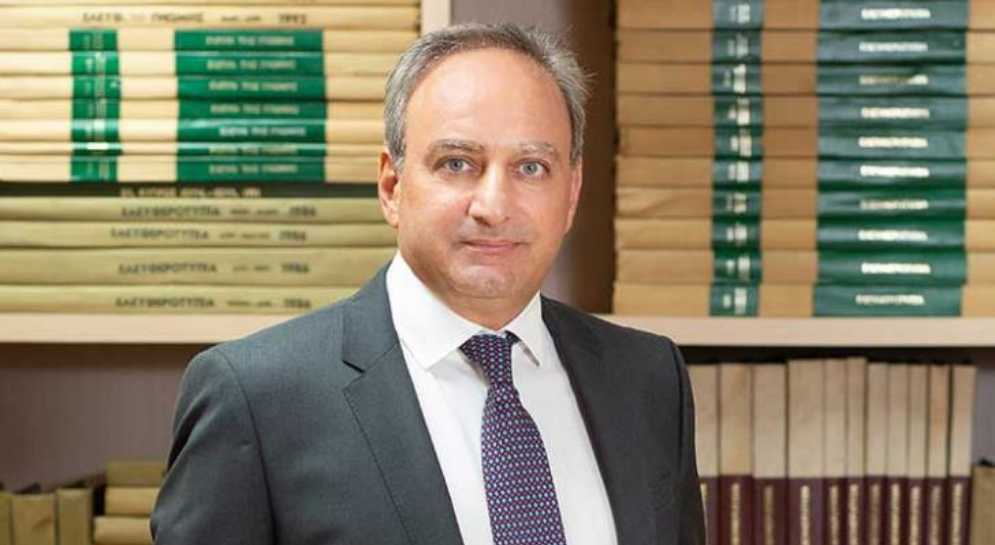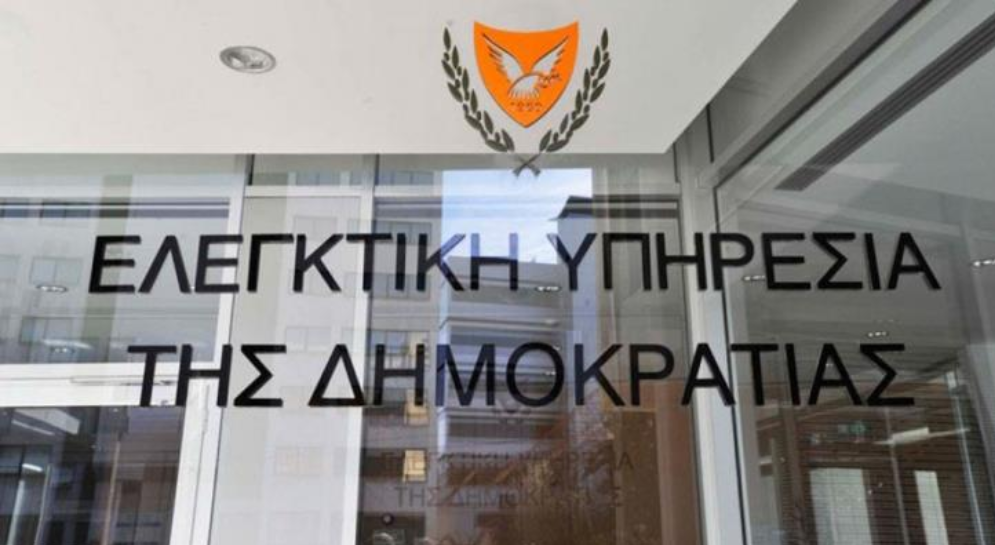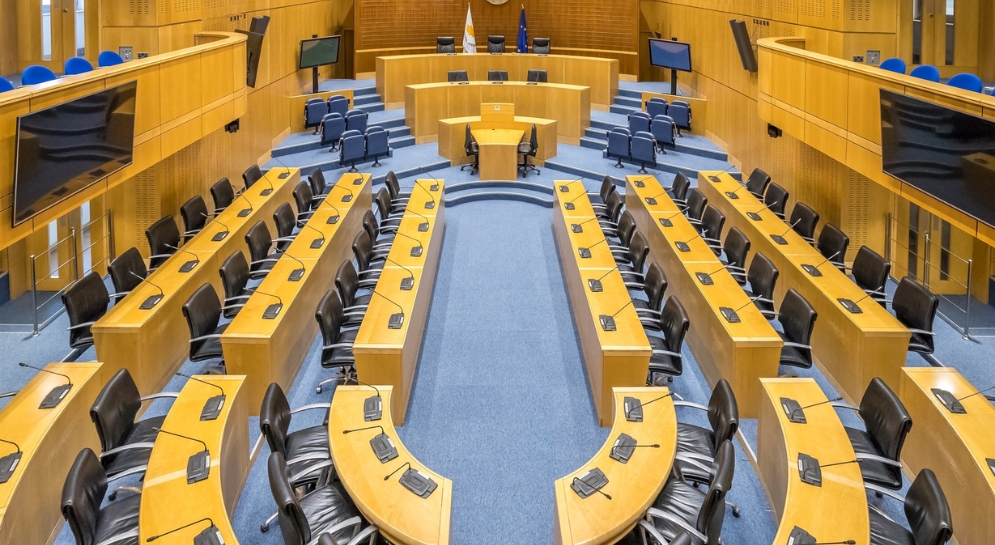
Interview with the General Secretary of the Central Committee of AKEL Stefanos Stefanou
The appointment of an envoy does not automatically mean that the deadlock on the Cyprus problem will be broken
Sunday 31 December 31, “HARAVGI” newspaper
HARAVGI: In a few days, according to the government, the appointment of Maria Angela Holguin Cuellar as the new UN Secretary General’s envoy on the Cyprus problem is expected to be announced. This is a positive development, but is the appointment alone enough?
SS: You correctly point out that the announcement of the appointment and arrival of the UN Secretary General’s envoy on the Cyprus problem will be a positive development. However, this does not mean that the deadlock on the Cyprus problem will automatically be broken and that negotiations will resume from the point where they had remained at Crans Montana in 2017. However, the presence of the UNSG envoy will enable contacts, fermentation and discussions to be held that will, if anything, reveal whether, and to what extent, there are indeed prospects for a resumption of the negotiations.
HARAVGI: Given the conflicting positions of the two sides in Cyprus and Turkey, can they come closer or record some convergences that would permit the resumption of the talks on the basis of the resolutions of the UN?
SS: The only way for the two sides to come closer together and resume negotiations is for the Turkish side to return to the agreed basis for a solution, which is none other than a Bizonal, Bicommunal Federation with political equality as set out in the UN resolutions.
If the Turkish side is adamant on its position for sovereign equality and a two state solution, then there will be no possibility of continuing the negotiations. This fact underlines the importance of the Greek Cypriot side to remain consistent to the agreed basis of a solution without any ambiguities, asterisks and footnotes.
HARAVGI: Is there a way for the international community to exert its influence on Turkey or does it restrict itself to just issuing some formal statements and allowing things develop on their own?
SS: The international community will act for the resumption of negotiations provided that it considers that there are indeed prospects for a successful outcome. Therefore, irrespective of the Turkish side’s stand, which so far has been negative and at times provocative, it is very important for the Greek Cypriot side to take specific initiatives to convince the international community to mobilise and exert its influence.
Here lies the importance of our Party’s clear position on the agreed basis for a solution, but also for the formulation of a positive agenda towards the Turkish side. In order to achieve this objective, it is well-known that AKEL has submitted a specific proposal on the content of a positive agenda, which we have presented to the President of the Republic, but also to the other political forces as well.
We believe that our proposal to make use of the developments surrounding energy in Cyprus and our region, without violating our “red lines”, can help towards breaking the longest deadlock ever recorded on the Cyprus problem and towards paving the way for the resumption of the negotiations.
HARAVGI: The government, however, no longer makes any reference to energy issues…
SS: Unfortunately, it never did. In our opinion, the approach of not making any political use of the energy factor is erroneous. Recent statements by both the Turkish Foreign Minister and Mr. Erdogan himself prove that energy is in Turkey’s field of interests. Therefore, given that Turkey appears to be interested in energy issues, we consider Mr. Christodoulides’ negative position of not being interested at least in the potential prospects created by the energy issue as incomprehensible. Indeed at a time when everything Mr. Christodoulides has from time to time has proclaimed on the Cyprus problem has not yielded any results whatsoever.
HARAVGI: In any case, the issue of an envoy of the EU has disappeared from the news.
SS: Yes, it has indeed gone away because the government has stopped bringing it back with all the communication mechanisms at its disposal. Brussels hasn’t responded to the President of the Republic’s proposal [for the appointment of an EU envoy]. This isn’t surprising if one bears in mind the EU’s position that it will become actively involved in the Cyprus problem once negotiations resume. For that reason, the President should stop trying to handle the issue for communication purposes and should focus on the substance.
Why AKEL is calling for the convening of the National Council
HARAVGI: You have called for the National Council to be convened, with the government replying that it will be convened when it deems necessary. However, there are several pending issues, such as Pyla, the Famagusta issue and the violations in the UN-administered buffer zone about which the President of the Republic gets upset when he is asked about the “visible and invisible measures” he has announced to counter them. Isn’t all this a reason why the National Council should already have been convened?
SS: What you have mentioned previously are precisely the reasons why AKEL has asked for the convening of a National Council [Note: an advisory body to the given President of the Republic on the Cyprus problem composed of all parliamentary parties and former Presidents]. It is obvious that the Turkish side, taking advantage of the stalemate on the Cyprus problem, is seeking to impose new occupational fait accompli on the ceasefire line.
This is something that AKEL has also predicted, not because we have some clairvoyant abilities, but because the long experience surrounding the Cyprus problem demonstrates this. We have called for a meeting of the National Council because we want to be briefed in a responsible and comprehensive manner about ongoing developments and, of course, to express our own views as well.
HARAVGI: The government says you could call and pose questions to the President.
SS: That is not how we understand a briefing to be and, even more so, that this is not how we understand the role of the National Council to be. It is in the National Council itself that we must be briefed and collectively submit our views and proposals. Everybody should listen to everybody’s views and positions.
What should we make of the President’s refusal to convene the National Council more often – that the President is afraid of any dissenting opinion and possibly any censure?
This is not a serious approach…
HARAVGI: You spoke of the need for a serious approach. But the President has called on the political forces to get serious…
SS: I agree! We must all be serious. Let’s begin with the President himself setting the example.
After the holidays, all the candidates for the municipal elections will be announced
HARAVGI: Let’s move on to the local elections. When will you complete the processes underway in AKEL?
SS: We are at an advanced stage with our procedures, which I should note are collective. Electoral assemblies have already taken place in several Municipalities and it has been decided which candidates AKEL will support for Mayors, deputy Mayorships and presidencies of district municipal organisations. The Party’s ballot for Municipal Councils and School Boards have also been formed. In some other Municipalities we are very close to completing our procedures. After the holidays we will complete these procedures and have candidates and alliances in all Municipalities. The same applies to the elections in the Municipalities.
HARAVGI: What criteria does AKEL set for supporting someone? Is it his/her Party origin, whether there are convergences with others, whether it is a personality?
SS: Our starting point is always the local community. We seek to work with people who can contribute to the local community through their knowledge, experience and work. Of course we want people who come from AKEL to have a strong presence on our electoral lists.
At the same time, we are also looking beyond AKEL to people and organised groups with whom we share common views on how local government can contribute towards meeting the needs of local societies. Of course, we always take note of the factor of electability, which is why we seek to forge cooperation and alliances, both at a Party level and at the level of organised groups from the local community, without of course downgrading our own presence.
HARAVGI: During the summer you announced the goal of forming a social alliance. Do these forces participate in the local election procedure?
SS: Of course they do. And this is not something new, it is something that has been happening since the formation of the custom of the New Forces. They participate in the electoral assemblies on the proposals and nominations that are submitted. They will also participate on the AKEL ballots.
HARAVGI: In the processes that are taking place in general on local elections, we observe scheming and give and take games, the demotion of candidates and the promotion of others. Do such methods affect AKEL too?
SS: No, they don’t. AKEL neither promotes nor undermines candidates according to how it suits or does not suit it. Our primary criterion is that our selections must be able to contribute to local communities. We do not follow the logic of wheeling and dealing. Such practices enhance the bad image that politics, politicians and parties have in the minds of society.
Decisions on the European elections in mid-January
HARAVGI: What about the European elections?
SS: Decisions will be taken at the level of the Central Committee as provided for in the party statutes. Proposals for the ballot were made by the party membership and we are now in the process of assessing them. According to our plans we expect to take our final decisions around mid-January.
HARAVGI: Is there any interest?
SS: Yes, there is interest even though the number of seats is limited, only six in number [for the Republic of Cyprus]. Our goal is to re-elect two AKEL MEP’s this year.
HARAVGI: Will there also be a Turkish Cypriot candidate again?
SS: Our decision is to continue the historic step that AKEL took in 2019 with the election of Niyazi Kizilyurek. Our historical experience is positive. The step we took in the previous elections attracted international interest and recognition. Let me remind you that Niyazi’s election was second headline news on Euronews. It is very important, therefore, to continue this historic step for Cyprus, for the solution of the Cyprus problem, for the relations between Greek Cypriots and Turkish Cypriots and for the messages we are sending internationally about the prospect of a solution and reunification.
HARAVGI: Has Niyazi Kizilyurek expressed his intention to be a candidate again?
SS: Yes, as he informed us, his intention is to run again.
Statutory changes to strengthen AKEL’s ties with society
HARAVGI: Last November, the AKEL Congress approved statutory changes. Do you see the new statutes “working”?
SS: The key changes will start to be implemented from the next Congress because there are relevant procedures in place now. But I must say that the changes decided at the Statutory Congress have helped to reinforce the message that AKEL is changing in the direction of the declared objective of further strengthening the Party’s links and ties with society. The changes prove once again that there is unity between AKEL’s promises and actions. The messages we are receiving from society about these changes, but also about the Party’s actions in general, are positive. We shall continue our efforts.
AKEL’s interventions on the 2024 state Budget aimed at ensuring more scrutiny, transparency and accountability
HARAVGI: AKEL has explained in detail, both in and outside of Parliament, why it voted against the 2024 State Budget. However, people are wondering, why if you vote against the Budget do you submit amendments to it?
SS: Because we want to achieve certain things. First of all, we are seeking to ensure greater scrutiny of the executive power by cutting, as we say, specific funds either for release from the Finance Committee. We also want Parliament to be briefed about how funds were allocated. So the first objective is to have more scrutiny, transparency and accountability.
The second objective is to cut funds from policies and actions with which we disagree with. One such example is our amendment to prevent any projects linked to Grivas from being endorsed and implemented.
HARAVGI: Was there any collusion between DISY and the parties supporting the government on the issue of Grivas?
SS: I don’t know, but it was really very strange that parties that in previous years voted for cutting the relevant funds [for a Grivas museum], this year voted otherwise and as a result the funds for a Grivas museum were approved. This does indeed smack of collusion.
I must also say that it was on AKEL’s initiative that we cut funds for the privatisation of semi-public institutions and other public services. If Parliament had the possibility to increase expenditure or funds, we would have proposed amendments to boost social policies and sectors. Unfortunately, however, under our Constitution, Parliament doesn’t have such a possibility.
Pessimism and fatalism do not change things.
HARAVGI: You have referred to social policy. Recently you have been organising campaigns on a lot on issues such as housing, poverty, migrants, foster families, etc. Do people respond to these campaigns? Are the messages getting through?
SS: Yes, they are, both in society and to those affected. For example, when we organised the Campaign on Housing, it enabled us to get in touch with the population groups and organisations, associations that are active on housing, as well as with relevant Ministries and government departments. I have to say that the results from this campaign are very, very positive.
We are now organising a second campaign on young parents. This campaign includes everything affecting this issue. About childcare and providing support families. Through this campaign too, we have been elaborating and submitting comprehensive proposals.
HARAVGI: However, things in society are not easy.
SS: Yes, things aren’t easy at all. There is poverty and deprivation, as well as economic insecurity that affects many people. People who, under the pressure of the problems they face, remain shut up in their homes and do not listen to anyone, who think that “they are all the same”, that no hope exists that things can change. Most of these people do not bother to vote. Of course, abstention perpetuates and consolidates a situation that people want to change.
So it is very important to convey the message to society that there is hope.
That there are alternatives for the benefit of society.
That there is a prospect of changing their situation as long as there is collective assertion and struggles are waged.
This is the message we are trying to get across to society, to counter pessimism and fatalism and to mobilise popular strata. Social experience has repeatedly shown that wishes and prayers don’t change anything. It is collective struggles and political actions that have changed a lot for the benefit of working people and society.

Secretary




